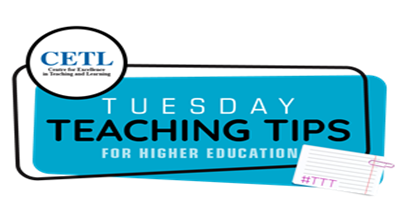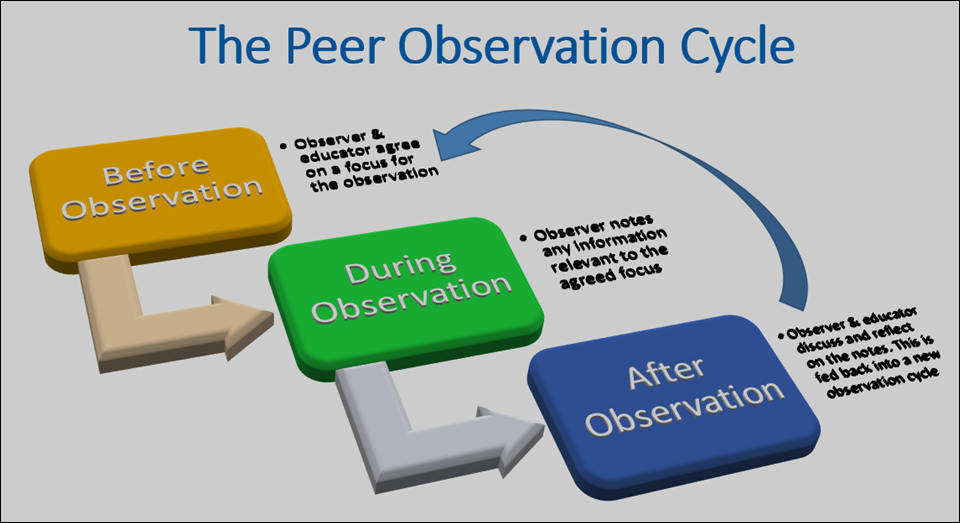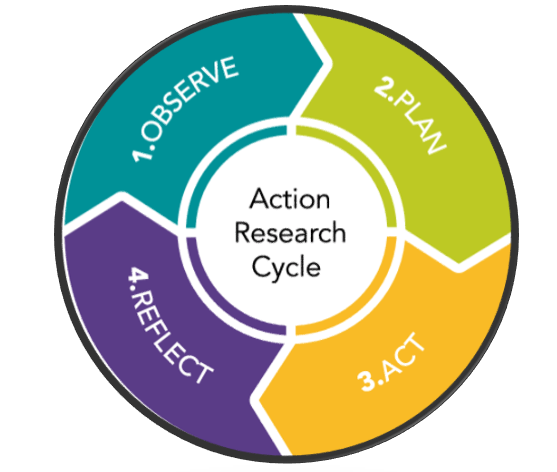
Good day Colleagues,
Welcome back to our Tuesday Teaching Tips (TTT) Blog.
The CETL is here to provide you with the support and training you require in teaching excellence and research. In our previous installments of TTT, we provided you with guidelines in accessing your myeLearning course, uploading content to your myeLearning course (see previous posts). This week, we want to take things a step further, and explore reflective practice, peer observation and action reserch.
A – Reflective Practice & Action Research
Reflective practice may be defined as “a systematic reviewing process for all teachers which allows you to make links from one experience to the next, making sure your students make maximum progress” (The Cambridge International Teaching and Learning Team). Reflective practice may be guided by different models, including Rolfe’s model (“What? So What?, Now What?”), Kolb’s (1984) model (“Concrete Experience, Reflective Observation, Abstract Conceptualization and Active Experimentation”), and Brookfield’s (2017) model (“Self, Students, Peers, Scholarship”).
Evaluation through reflective practice allows you “to understand teaching in order to improve student learning” (Ramsden, 2003). Reflective practice may help you to evaluate your performance/effectiveness as an educator, the overall quality of student learning, the design of the curriculum, and student engagement. Reflective practice and evaluation may occur through different means including:
-
A Teaching Philosophy: A self-reflective statement of your beliefs about teaching and learning
-
Teaching Logs: Journals that detail and analyse teaching experiences and courses
-
Teaching Portfolio: a documented statement of your teaching responsibilities, philosophy, goals and accomplishments as an educational practitioner
-
Peer Evaluation/Observation: A formative process where two or more educators provide critical feedback.
B – Reflective Practice & Peer Observation
Peer observation is one means through which reflective practice may be implemented. It may be seen as the observance of learning as it is happening. It is a process where an educational practitioner invites a colleague(s) to his/her class to observe the teaching and students’ engagement, and then provides feedback through discussion on ways to enhance the teaching and learning. As such, peer observation provides benefits to both the observer and the observed as both may learn from each other toward the improvement of teaching and learning.
Peer observation is a continuous process which comprises three main phases as seen in the illustration below:

In peer observation “staff need to feel safe if they are able to be honest about their teaching: and there needs to be a collegial spirit of mutual support among equals if lecturers/tutors are to accept collective responsibility for teaching within a department” (Coffield, 2012).
C – Reflective Practice & Action Research

Reflective practice is closely tied to, and also informs action research. Action research was conceptualized as a methodology that has been concerned with change and improvement in practice. This may take different types such as:
-
Individual: an educator investigating an issue in his/her class (small scale)
-
Collaborative: a group of teachers working on a common problem (medium scale)
-
System-wide: A team of professionals focusing on a school or district-wide issue (large scale)
Reflective practice and action research are closely tied to the scholarship of teaching and learning

D – Action Research: An Inquiry-Based Approach to Teaching
The CETL is hosting an interactive, face-to-face workshop that is designed to equip you with the tools and knowlegde in conducting action research in your teaching context. Located at the CETL Technology Space, this session will help you develop an action reseach plan that also identifies the reseach goals, methodology and data collection startegies. Should you like to attend, please see the following details of the session including the registration link:
Dates: Sep 18th 2024
Time: 10:00am to 12:00noon
Presenter: Mr. Marc Garcia
Venue: CETL Technology Lab -Teaching and Learning Complex (TLC)
To register CLICK HERE
We hope the aforementioned resources are helpful.
Should you need any further assistance, please feel free to contact us.
Regards,
The Centre for Excellence in Teaching & Learning (CETL),
The University of the West Indies (UWI),
St. Augustine.
